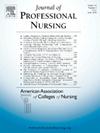The year long journey: Transforming the BSN-DNP curriculum
IF 2.8
3区 医学
Q1 NURSING
引用次数: 0
Abstract
Background
Revising a doctor of nursing practice (DNP) curriculum for family nurse practitioner and psychiatric mental health nurse practitioner education with an eye on future changes in competencies required planning and consensus among taskforce members. Major priorities included: the need to embed competency- based education (CBE), the National Taskforce Criteria for Nurse Practitioner (6th ed.) education, and the Essentials: Core competencies for professional nursing education (American Association of Colleges of Nursing (AACN) Essentials, 2021).
Findings
Challenges began with faculty knowledge of CBE, NP faculty skills in curriculum building, buying in to the revised degree, and reviewing all current literature on the DNP NP knowledge, skills and attitudes needed for current practice. The year long journey yielded a comprehensive curriculum model to share as well as several lessons learned and recommendations for this journey.
Conclusion
The process resulted in a curriculum revision that thus far, is better suited to development of the “work-ready” graduate while still supporting individualized student needs in attending a doctoral-level program. Ongoing work is focused on specific “pillars” of program support including clinical preceptor placement and partnerships, preceptor resources, student retention resources, and exploration of competency-based tracking data management.
Considering the impact on faculty workload, program leadership should actively assess levels of curricular expertise of faculty involved to determine additional development or training needs for individual professional growth.
长达一年的旅程:改革 BSN-DNP 课程
背景修订家庭护士执业者和精神心理健康护士执业者教育的护理实践博士(DNP)课程,着眼于未来能力的变化,需要特别小组成员的规划和共识。主要优先事项包括:嵌入基于能力的教育(CBE)的必要性、执业护士教育国家工作组标准(第 6 版)和要点:研究结果挑战始于教师对能力本位教育的了解、NP 教师在课程建设方面的技能、对修订后学位的认同,以及对当前实践所需的 DNP NP 知识、技能和态度的所有最新文献的审查。在长达一年的历程中,形成了一个全面的课程模型,并分享了在这一历程中吸取的若干经验教训和建议。结论这一过程导致了课程的修订,到目前为止,该课程更适合培养 "为工作做好准备 "的毕业生,同时仍然支持学生参加博士水平课程的个性化需求。考虑到对教师工作量的影响,项目领导应积极评估相关教师的课程专业知识水平,以确定个人专业成长的额外发展或培训需求。
本文章由计算机程序翻译,如有差异,请以英文原文为准。
求助全文
约1分钟内获得全文
求助全文
来源期刊
CiteScore
4.80
自引率
8.00%
发文量
153
审稿时长
52 days
期刊介绍:
The Journal will accept articles that focus on baccalaureate and higher degree nursing education, educational research, policy related to education, and education and practice partnerships. Reports of original work, research, reviews, insightful descriptions, and policy papers focusing on baccalaureate and graduate nursing education will be published.

 求助内容:
求助内容: 应助结果提醒方式:
应助结果提醒方式:


